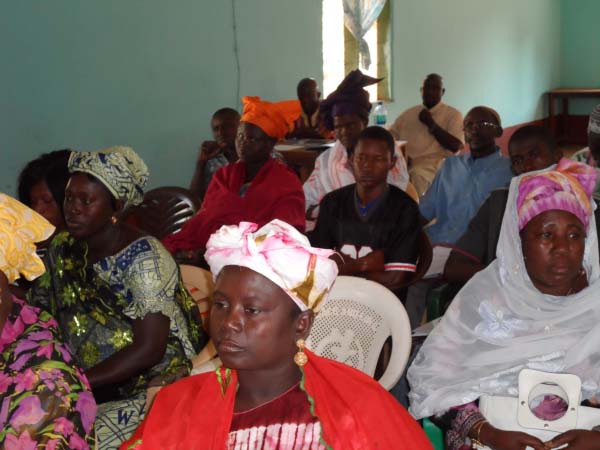
The Food and Agricultural Sector Development Project (FASDEP) on Wednesday concluded a five-day capacity building for forty commercial small-scale poultry farmers at the Jenoi Agricultural Centre in Lower River Region.
The training, geared towards empowering poultry farmers on leadership, increased marketing skills, organizational management and business management, also seeks to enhance commercial farmers in improving their daily business income in small livestock.
Speaking at the end of the training, Ali Jawo, Business Development Officer at FASDEP, said the training falls under the capacity building of entrepreneur for people who are engaged in commercial small-scale poultry production.
He said the project targeted its intervention on direct beneficiaries to train them with the necessary skills in the management of their businesses within their group members.
The training was meant to prepare them so that the knowledge gained can enhance their production and increase their marketing skills for poultry farmers, he said.
According to him, the training was basically meant to improve their business activity, particularly on poultry production and marketing techniques.
It was based on this fact that the project targeted their intervention side farmers within the West Coast Region, Lower River Region and Central River Region South and North to train them on the various thematic areas, he said.
He added that the FASDEP project deems it necessary to empower farmers with the necessary knowledge to improve their marketing skills, poultry production, business strategy and leadership, as well as organizational management, which is key to any sustainable institution.
Jawo advised the farmers to be business-oriented and see poultry as a very viable venture in terms of enhancing food security in the country.
He also challenged farmers to produce more maize to avoid importation of chicken, saying this is why the FASDEP project aims to improve poultry production for farmers on marketing skills and leadership as well as on organizational management to enhance food security.
He further asserted that at the end of the training, participants were expected to share the information to enable them expand their businesses as well as to improve their marketing skills effectively in poultry production.
Speaking on behalf of the women farmers, Jerrie Keita and Fatou Badjie, poultry farmers, expressed appreciation about the training, saying it was the first of its kind for poultry farmers to be part of an educative information-sharing training regarding poultry business, leadership, organizational management, and marketing skills.
According to them, the skills gained during the five-day training will be used effectively in the management of their poultry farms to boost their poultry production and marketing.



